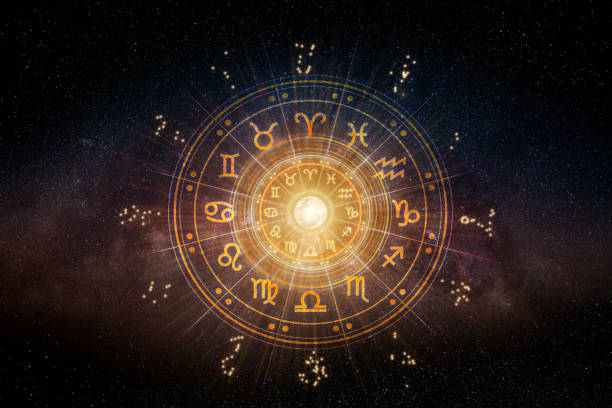Today’s Horoscope Guide: Navigating the Stars
Horoscopes have fascinated humanity for centuries, serving as a celestial guide to understanding life and its myriad events. At its core, a horoscope is a chart or diagram representing the positions of the Sun, Moon, planets, and astrological aspects at the time of an event, such as a person’s birth. This ancient practice roots itself in the belief that the alignment of celestial bodies can influence an individual’s personality and future.

Astrology connects human experiences with the movements of celestial bodies, creating a symbolic language that millions consult for guidance and reflection. While some approach horoscopes with curiosity and others with skepticism, the practice remains a significant cultural phenomenon across diverse societies. By examining the structure and purpose of horoscopes, you can better understand what they offer and how to engage with them thoughtfully.
Understanding Horoscopes: A Brief Overview
A horoscope is an astrological chart or diagram representing the positions of the sun, moon, planets, and astrological aspects at a specific time, typically the moment of a person’s birth. The term derives from the Greek words “hora” meaning time and “skopos” meaning observer. Astrologers use these celestial snapshots to interpret potential influences on personality, behavior, and life events. The practice dates back thousands of years to ancient Babylonian, Egyptian, and Greek civilizations, where priests and scholars studied the heavens to predict seasonal changes and advise rulers. Today, horoscopes appear in newspapers, magazines, websites, and mobile applications, offering daily, weekly, monthly, and yearly forecasts based on zodiac signs. Each zodiac sign corresponds to a specific period of the year and is associated with particular characteristics, elements, and planetary rulers that shape its interpretation.
The Components of a Horoscope
A complete horoscope consists of several key elements that work together to create a comprehensive astrological profile. The zodiac wheel divides the sky into twelve sections, each representing a zodiac sign: Aries, Taurus, Gemini, Cancer, Leo, Virgo, Libra, Scorpio, Sagittarius, Capricorn, Aquarius, and Pisces. The twelve houses within a horoscope chart represent different life areas such as self-identity, finances, communication, home, creativity, health, partnerships, transformation, philosophy, career, community, and spirituality. Planets including the sun, moon, Mercury, Venus, Mars, Jupiter, Saturn, Uranus, Neptune, and Pluto occupy specific positions within these houses and signs, each carrying distinct symbolic meanings. Aspects are the angular relationships between planets that indicate how their energies interact, such as conjunctions, oppositions, trines, squares, and sextiles. The ascendant or rising sign marks the zodiac sign that was ascending on the eastern horizon at the time of birth, influencing outward personality and first impressions. These components combine to create a unique astrological fingerprint that astrologers interpret to provide personalized insights.
Daily Horoscopes: What Do They Offer?
Daily horoscopes provide brief astrological forecasts based on the current positions of celestial bodies and their relationship to your sun sign. These popular readings typically focus on general themes such as relationships, career opportunities, health considerations, and emotional states that may be prominent on a given day. While daily horoscopes are generalized for millions of people sharing the same sun sign, they often resonate with readers by highlighting universal human experiences and encouraging self-reflection. Many people find value in daily horoscopes as a form of mindfulness practice, using them as prompts to consider their intentions, challenges, and opportunities. The forecasts may suggest favorable times for certain activities, warn against potential difficulties, or encourage particular attitudes and approaches. However, it is important to recognize that daily horoscopes offer broad guidance rather than specific predictions, and their accuracy depends largely on how personally relevant the themes feel to individual readers. Some astrology enthusiasts prefer more detailed readings that consider their complete birth chart, including moon sign, rising sign, and planetary positions, for more nuanced and personalized insights.
Interpreting Your Horoscope: Tips and Techniques
Interpreting horoscopes effectively requires a balanced approach that combines openness with critical thinking. Begin by reading your horoscope with curiosity rather than absolute belief, treating it as a tool for self-reflection rather than a definitive prediction. Consider the broader themes and symbolic meanings rather than taking every word literally, as astrological language often speaks in metaphors and archetypes. Reflect on how the forecast relates to your current circumstances, emotions, and challenges, looking for connections that feel meaningful to your personal experience. Keep a journal to track horoscope readings alongside your daily experiences, which can help you identify patterns and assess which interpretations resonate most accurately over time. Learn about your complete birth chart beyond just your sun sign, as understanding your moon sign, rising sign, and planetary placements provides deeper context for astrological interpretations. Consult multiple sources and compare different astrologers’ perspectives, recognizing that interpretations can vary based on individual approaches and astrological traditions. Remember that horoscopes offer possibilities and tendencies rather than fixed outcomes, and your free will and choices ultimately shape your life path regardless of astrological influences.
The Relevance and Impact of Horoscopes Today
In contemporary society, horoscopes maintain widespread popularity despite advances in scientific understanding and technology. Millions of people worldwide consult astrological forecasts regularly, finding comfort, guidance, and entertainment in these cosmic interpretations. The digital age has expanded access to horoscopes through websites, mobile applications, and social media platforms that deliver personalized readings instantly. Psychological research suggests that horoscopes may function through mechanisms such as the Barnum effect, where people recognize themselves in vague, general statements that could apply to many individuals. However, for many practitioners and enthusiasts, the value of horoscopes lies not in empirical proof but in their capacity to encourage introspection, provide symbolic frameworks for understanding life experiences, and foster a sense of connection to something larger than oneself. Horoscopes can serve as conversation starters, community builders, and sources of hope during uncertain times. Whether approached as spiritual practice, psychological tool, or cultural tradition, horoscopes continue to offer millions of people a meaningful way to navigate life’s complexities and contemplate their place in the universe.
Horoscopes represent a fascinating intersection of ancient wisdom, symbolic interpretation, and modern accessibility. While they should not replace critical thinking, professional advice, or personal responsibility, they can serve as valuable tools for self-reflection and mindfulness. By understanding the components of horoscopes, approaching daily readings with balanced perspective, and recognizing both their limitations and potential benefits, you can engage with astrological guidance in ways that enrich your life without compromising your autonomy. Whether you are a devoted believer or a curious skeptic, exploring horoscopes offers insights into human nature, cultural history, and our enduring fascination with the stars above.




